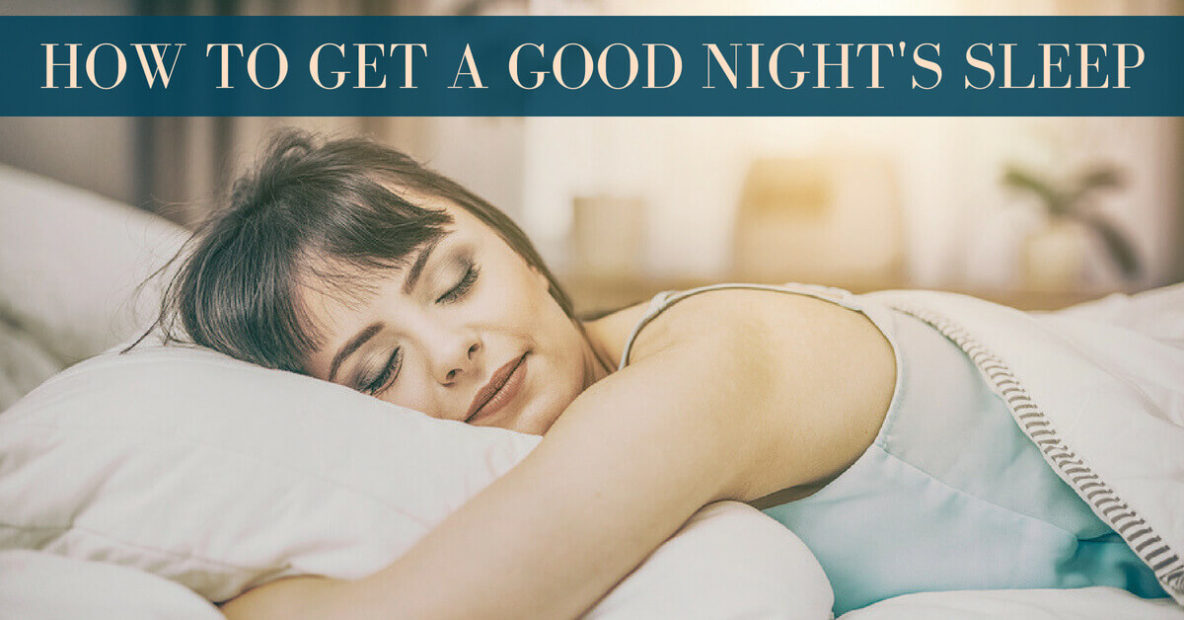How to Get a Good Night’s Sleep

- A Promising Paradigm Shift: New Research Challenges the CPAP-First Approach to OSA Treatment - September 5, 2023
- Understanding Sleep Meditation Techniques - July 30, 2021
- How Online Learning Has Affected Sleep for Students - July 13, 2021
A restful night of sleep is refreshing to both the body and mind. Don’t we all wish we could wake up like the people in some of those TV commercials, just stand up and stretch and the sun is out, and the birds are singing? A good night’s sleep can be hard to come by for some and worrying about getting a good night’s sleep causing enough anxiety that you DON’T get a refreshing rest.
Adults need between seven and nine hours of sleep a night. Children need more because it takes longer for their bodies to “reboot” during sleep. As we get older it may be harder to sleep, but it is a misconception that older people need less sleep.
Sound Sleep Medical has been in the sleep profession for 25 years. We can help with sleep apnea and other breathing issues – but here, too, are some tips to try to get a good night’s sleep.
Stick to a schedule
Sure it’s nice to think about sleeping in on the weekend but disrupting your usual sleep patterns may mean less sleep during the week when you need it. Try and go to bed and wake up at the same time even on the weekends. This keeps your body click in sync and will help you fall asleep and stay asleep every night.
If you’ve had a late night on Friday or Saturday and need to catch up take a 15 to 20-minute nap in the early afternoon. But avoid using naps as a regular sleep crutch to get through the day. If you have trouble sleeping at night and you take a cat nap during the day, cut those out of your schedule and concentrate on sleeping through the night.
Practice a relaxing bedtime routine
Start a relaxing routine activity about 45 minutes before bedtime conducted away from bright lights. This helps separate your sleep from the activities during the day. Reading works! For some people using an electronic device such as a laptop does not constitute a “wind down” because the type of light that emanates from the screen activates the brain.
Exercise daily
Vigorous exercise is best, but even a little is better than nothing. Exercise anytime during the day except about an hour before sleep.
Avoid alcohol, cigarettes and heavy meals
Alcohol, cigarettes and caffeine disrupt sleep. Eating a heavy spicy meal and cause discomfort and make it difficult to sleep. Avoid a large meal two to three hours before bedtime. If you are still hungry, try a light snack about 45 minutes before you go to bed.
Evaluate your sleeping area
Design your sleeping area to make it conducive for the best sleep. It should between 60 and 67 degrees and it should be free of noise that might disrupt your sleep. This includes a snoring bed partner. Sound Sleep Medical can test both you and your partner for sleep apnea if you can’t agree on who is keeping whom awake!
Your sleeping area should be dark – consider using blackout shades or curtains, eye shades and even ear plugs if needed. White noise devices, fans or dehumidifiers can supply soothing background noises. Avoid the television and try soft music or audio books if needed. Use an air purifier if needed to keep your bedroom free of irritating allergens.
The bed
Sleep on a comfortable supportive mattress and use pillows for neck and head support. The “shelf life” of a mattress is between 9 and 10 years – if its time for a new one, get one.
Can’t sleep?
If you get to bed and can’t sleep, try going to another room and doing something relaxing, like reading a book or listening to music for 15 minutes or so and try again. Try relaxation breathing while lying in bed. Close your eyes and take deep slow breaths making each successive breath a little deeper and slower. Try progressive muscle relaxation. Start with your toes and tense them as tightly as you can and then relax. Work your way up to your head tensing each muscle and relaxing. Visualize a peaceful, restful place and put yourself there.
Seek professional help
Many adults have their sleep affected by sleep apnea which is fatiguing as well a dangerous if undiagnosed. Sound Sleep Medical can diagnose sleep apnea and treat it – call us today for an evaluation and treatment.
